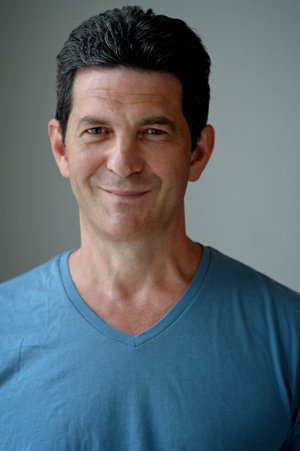Lefty on the Right Coast
November 30, 2011The Studio’s professional company, the Harold Clurman Laboratory Theater Company, recently made its West coast debut. The Lab presented Clifford Odets’ Waiting for Lefty at the Art of Acting Studio. This production was a landmark occasion for me. As the Artistic Director of this burgeoning company, it is a dream come true to see the Lab Theater present work in Los Angeles, and, at that, an important play directly related to our Group Theater roots.
To this day my mother still tells stories about being a little girl backstage at Group Theater rehearsals and opening nights. She was present for her step-father Harold Clurman’s impassioned speeches about the American theater. She remembers Clifford Odets with great affection. She was there – at the beginning of an exciting chapter in American theater history.
As I watched a performance of Lefty I felt the strength of Odets’ words and sensed that a long line of theater artists and others were peaking over our shoulders – Clifford Odets, Harold Clurman, Bobby and Sandy and Gadg; Stella and Phoebe and Ruth. It seemed crystal clear that the contribution that the twenty-one artists made to the Los Angeles Theatre scene would have made the Group Theatre proud. Perhaps more importantly, it made a difference to the audience in the here and now. Perhaps there was a young person in the audience, who, like my mother, would recall the theatrical exuberance and political courage and engagement of the artists. It occurred to me that our audience might include an emerging artist who, in five, ten, fifteen years will continue to carry the tradition forward.
That Odets play reverberates in important ways for a modern audience, seventy-five years after its debut in New York, is quite extraordinary. The run at Art of Acting Studio ended with a special performance. Under the leadership of director Don K. Williams, the company quickly rehearsed the show for a new space and played out-of-doors at the Occupy LA encampment. At the end of the show the audience joined in with the legendary final battle cry of “Strike! Strike! Strike!” In the subsequent weeks the studio received a foundation grant to continue to support more work like Lefty. The foundation requires that we match the grant dollar for dollar, a prospect that has me incredibly excited and inspired for the next phase of the Harold Clurman Lab Theater’s growth. The cast of Lefty, led by Katherine Brandt, is championing a Kickstarter campaign to raise an additional $10,000 to bring the show to New York for a limited run in 2012.
Reflecting on these past several weeks with Lefty, I’m filled with a sense of purpose and audacity. It feels to me that we are living in a very interesting time. Perhaps, like our theatrical ancestors, we are on the precipice of a great social movement, one that is specific to our time and to which we have something valuable to contribute. It feels important to remember that to remain vital as an arts organization with deep roots in the past, we must nourish the branches that extend far into the future and have a fierce engagement with the present.
As we go forward into this great unknown – keep the fire burning!
